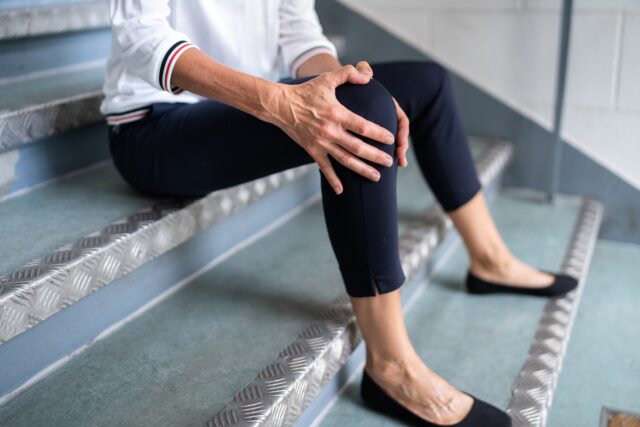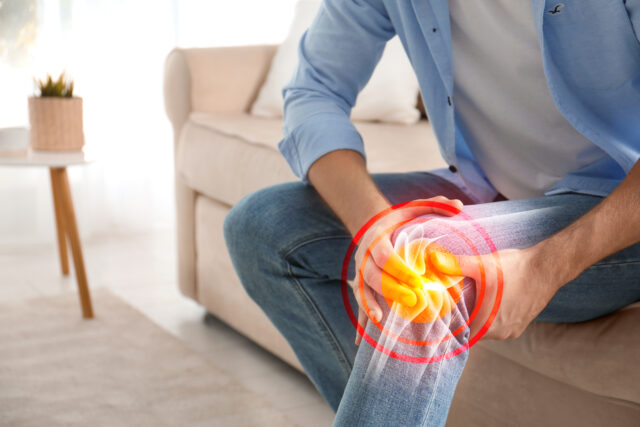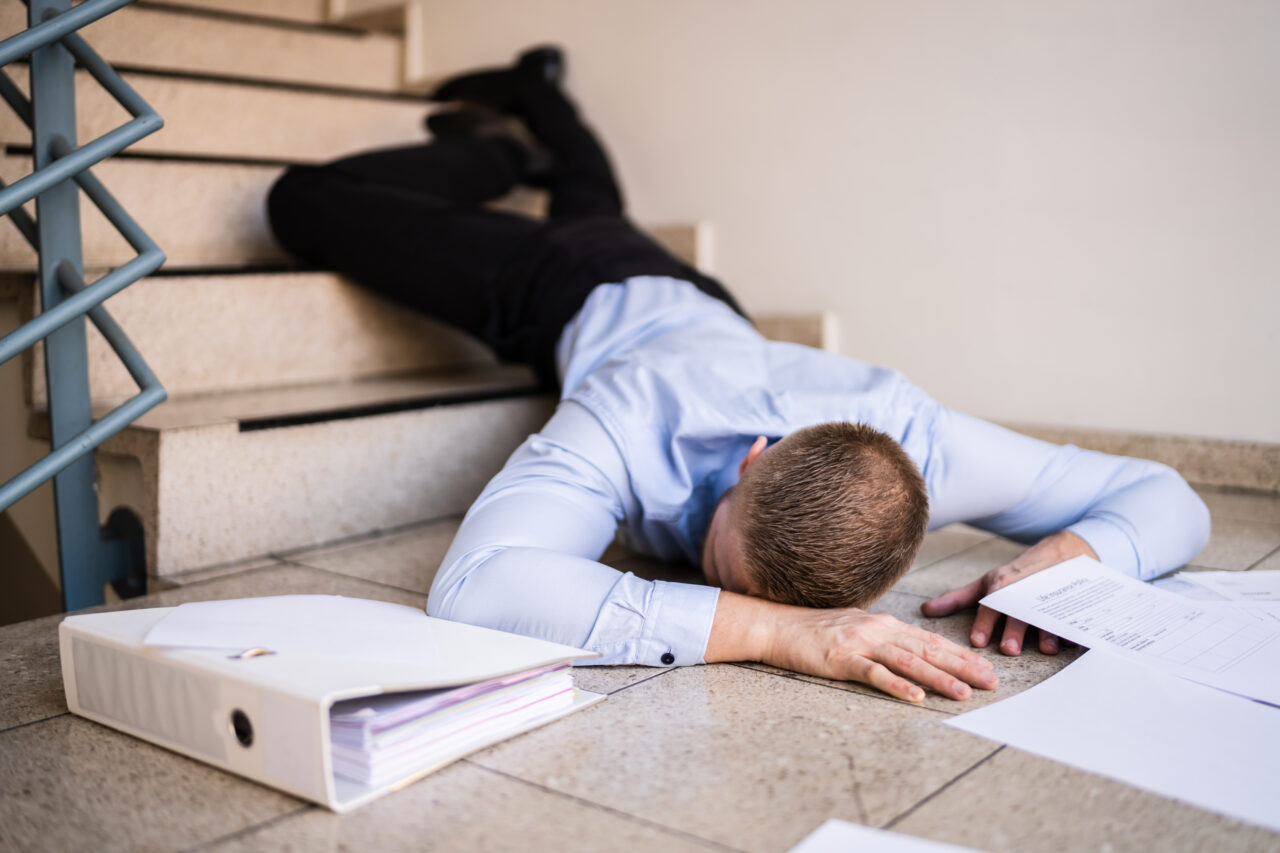If you suffered an injury on someone else’s property, you have the right to seek compensation for your injuries if the property owner’s negligence caused your accident. This includes compensation for medical bills, lost income, pain and suffering, and other damages. To protect your rights, it’s important to report the injury, gather evidence (like photos or witness statements), and seek medical treatment right away.
A knowledgeable premises liability attorney in Rogers can help you understand your rights, investigate the accident, and build a strong case. They can also negotiate with insurance companies for a fair settlement or represent you in court if the case goes to trial, ensuring that you receive the full compensation you deserve for your injuries.
Most Common Accidents on Someone Else’s Premises
Premises accidents occur when a person suffers an injury while on someone else’s property, and these accidents are often a direct result of the property owner’s negligence. Negligence happens when the property owner fails to take reasonable steps to maintain a safe environment. Several types of premises accidents commonly result from this neglect.
One of the most frequent types is slip and fall accidents. These occur when the property owner does not properly maintain walkways or floors. For instance, wet floors that aren’t marked with warning signs, poorly lit areas, or uneven sidewalks can cause people to lose their footing and fall. Property owners have a responsibility to keep their premises clear of hazards like spills, ice, or clutter that may cause accidents.
Another common accident is related to poor maintenance of staircases. Broken steps, loose handrails, or steps that are too narrow or uneven can lead to serious injuries. When property owners do not regularly inspect and repair their stairs, then the stairs can become dangerous to visitors. This type of negligence can lead to falls, often resulting in broken bones or worse.
Inadequate security is also a major concern in certain types of premises accidents. Property owners are expected to provide reasonable security measures to protect visitors from criminal activity. For example, poorly lit parking lots, broken locks, or lack of security personnel can increase the risk of assaults or robberies. When these security failures lead to harm, the property owner may be held liable for the injuries suffered.
Hazardous conditions like exposed wires, faulty lighting, or unsecured heavy objects can also lead to accidents. These conditions can cause electrical shocks, trips, or falling objects, leading to injuries. Property owners are expected to identify and fix any dangerous conditions to prevent accidents.
Swimming pool accidents are another common type of premises accident. Property owners with pools must ensure they have proper fencing, warning signs, and lifeguards if needed. Neglecting pool safety can lead to drownings, especially if there is inadequate supervision or if safety features like pool covers or gates are not maintained.
Common Injuries in Premises Accidents

When property visitors suffer an injury due to an accident resulting from a property owner’s negligence, the consequences can be both physical and mental. These injuries vary in severity, but some are more common than others.
Physical injuries are often the most obvious result of premises accidents. Fractures and broken bones are frequent, especially in slip and fall accidents or falls down stairs. A person may twist an ankle, break a wrist, or suffer a more severe injury, such as a hip fracture. These injuries often require medical attention, sometimes including surgery, and can have long-lasting effects on a person’s ability to walk or perform everyday tasks.
Head injuries are another serious risk. If someone falls and hits their head, they may suffer concussions, skull fractures, or traumatic brain injuries (TBIs). Concussions can lead to dizziness, headaches, and memory problems, while a more severe brain injury can result in long-term cognitive impairment or permanent disability.
Spinal cord injuries may also occur, particularly in falls from height or accidents involving heavy objects. Damage to the spine can cause partial or total paralysis, which may change a person’s life permanently.
In addition to physical injuries, visitors may experience significant mental and emotional harm as a result of an accident. Post-traumatic stress disorder (PTSD) is common after a traumatic accident. People who experience an unexpected fall or dangerous incident may have flashbacks, nightmares, and heightened anxiety when they return to similar environments, making everyday life difficult.
Anxiety and depression can also develop, especially if the injury leads to long-term physical limitations, financial strain, or difficulty returning to work. A person who was once active and independent may struggle emotionally with their loss of mobility or independence.
Finally, chronic pain from injuries like back problems or joint damage can result in ongoing psychological distress. The frustration and sadness due to constant pain can lead to depression and affect a person’s overall quality of life.
How to Prove the Elements of a Premises Liability Case
In a premises liability case, the person injured must prove certain legal elements to win compensation. These elements help to establish that the property owner was negligent and responsible for the accident. Here are the key legal elements that must be proven:
- Duty of Care: The first step is showing that the property owner had a duty to maintain a safe environment. Property owners have a legal responsibility to ensure that their property is free from hazards that may harm visitors. The duty of care varies depending on the type of visitor. Invitees (people invited onto the property for business purposes) are owed the highest duty, while licensees (guests) and trespassers are owed a lower duty.
- Breach of Duty: Once it’s established that the property owner had a duty of care, the injured person must prove that the owner breached this duty. A breach happens when the property owner fails to take reasonable steps to address known hazards or prevent accidents. For example, if a property owner knows there is a wet floor but doesn’t put up warning signs or clean it up, they may be in breach of their duty.
- Causation: The injured party must show that the property owner’s breach directly caused their injury. This means there must be a clear link between the unsafe condition and the premises accident.
- Damages: Finally, the injured person must show that they suffered actual damages, such as medical bills, pain and suffering, lost income, or emotional distress. A court will require evidence of these damages to determine the amount of compensation to award.
To prove these elements, the injured party can use several types of evidence. Photographs or videos of the hazardous condition (like a spill or broken step) can be very helpful. Witness statements from people who saw the accident or who can testify about the unsafe condition are important, too. Medical records and bills can establish the extent of the accident victim’s injuries and damages.
Process of Settling or Litigating a Premises Liability Case
When someone suffers an injury on another person’s property due to negligence, they may seek compensation through a premises liability claim. The process may either end in a settlement or go to trial (litigation). A lawyer can be a valuable guide throughout this process by protecting the accident victim’s rights and aggressively pursuing the compensation they deserve.
The first step in a premises liability case is to meet with a lawyer. During this initial consultation, the lawyer will ask about the details of the accident, your injuries, and any evidence you may have, such as photos, medical records, or witness statements. The lawyer will then investigate the incident, which may include gathering information about the property owner’s negligence (like unaddressed hazards) and reviewing any past incidents on the property.
If the lawyer believes there is a case, they will file a formal claim against the property owner’s insurance company. The goal here is to negotiate a settlement without going to court. The lawyer will send a demand letter to the insurance company, outlining the details of the accident, your injuries, and the compensation you seek. The insurance company will then review the claim and may either offer a settlement or deny the claim.
In many premises liability cases, the dispute is resolved through settlement negotiations. The insurance company may offer a compensation amount that may or may not meet your expectations. Your lawyer will then negotiate on your behalf, trying to secure a fair amount for medical expenses, lost income, pain and suffering, and other damages. It’s important to understand that a settlement is often quicker and less costly than a trial. However, your lawyer will advise you if the settlement offer is reasonable or if you should proceed to court.
If a fair settlement cannot be reached, the case may go to trial. Your lawyer will file a lawsuit in court and present evidence at trial to support your claim, including witness testimony, expert opinions, and medical records. The defense will also present its case. The lawyer’s role is to argue for your side, cross-examine witnesses, and ensure that your interests are represented throughout the trial. After both sides present their arguments, the judge or jury will decide the outcome.
Damages You Can Recover for Your Injuries in a Premises Accident
If you’ve suffered an injury in a premises accident due to a property owner’s negligence, you may be eligible to recover compensation for your losses. This compensation is meant to cover the physical, emotional, and financial costs of the accident. Here are the main compensable losses you may be entitled to receive in your case:
Medical Expenses
The most common loss is medical expenses. This includes the cost of treatment for your injuries, such as hospital bills, doctor visits, surgeries, physical therapy, and prescription medications. If your injury requires ongoing treatment or long-term care, you may also be compensated for those future medical costs.
Lost earnings
If your injury prevents you from working, you can recover compensation for the earnings you lost while you were unable to earn income. This includes time off for medical appointments, recovery, or rehabilitation. If your injury results in a long-term disability, you may also be entitled to compensation for future lost earnings if you are unable to return to work in the same capacity or at all.
Pain and Suffering
 In addition to physical injuries, accidents can cause significant emotional distress. Pain and suffering compensation accounts for the physical pain and emotional suffering you experience as a result of the accident. This includes both the immediate pain from your injuries and any long-term discomfort or emotional struggles, such as depression, anxiety, or PTSD.
In addition to physical injuries, accidents can cause significant emotional distress. Pain and suffering compensation accounts for the physical pain and emotional suffering you experience as a result of the accident. This includes both the immediate pain from your injuries and any long-term discomfort or emotional struggles, such as depression, anxiety, or PTSD.
Emotional Distress
Emotional distress refers to the psychological effects of the accident, which can include anxiety, fear, or depression. If your injury has caused significant emotional harm, you can recover compensation for the mental anguish you’ve suffered. This is often considered in addition to pain and suffering.
Loss of Consortium
If the injury affects your relationship with your spouse, such as by preventing intimacy or causing emotional distress in the relationship, your spouse may be entitled to loss of consortium compensation. This recognizes the non-physical harm resulting from the accident to your marriage or partnership.
Property Damage
If any of your personal property was damaged during the accident (like clothing, a phone, or a vehicle), you may be eligible for property damage compensation. This helps cover the cost of repairs or replacement.
Punitive Damages
In some cases, if the property owner’s actions were particularly reckless or malicious, you may be awarded punitive damages. These are not meant to compensate you for your losses but to punish the at-fault property owner and deter others from similar behavior.
Call an Experienced Premises Liability Lawyer Today
Trying to negotiate with a large insurance company on your own is never a good idea. If you suffered injuries in a premises accident resulting from a property owner’s negligence, you have legal rights and options available to you. A skilled Rogers personal injury attorney can go over your options with you, file a claim or lawsuit in your case, and work to maximize your settlement or litigation award.

